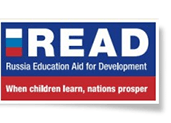With more children enrolled in school worldwide than ever before, many countries are looking beyond issues of education access to issues of education quality. Indeed, Quality Education is one of the UN’s Sustainable Development Goals for 2030, and a major focus of the World Bank’s Human Capital Project. Effective learning assessments are an important measure of quality, helping to capture information about what students know and can do to ensure they are on track for success in their lives.
Learning assessments can provide vital information on student performance, from helping teachers determine the needs of individual students, to making high-stakes choices about students’ educational progress, to informing policymakers as they make decisions on a national scale. Many countries especially want to know how they compare to others. Large-scale international assessments, like PISA, TIMSS, and PIRLS, provide such international comparisons, but only for participating countries—most of which are high- and middle-income. The World Bank’s Human Capital Project includes harmonized scores from international and regional large-scale assessments for about 160 countries, and countries are stepping up their efforts to implement national and internationally comparable learning assessments, but there are
still some significant coverage gaps.
To help client countries strengthen their assessment systems, and to set the stage for more countries to participate in large-scale national and international assessments, the World Bank in February held an internal launch of its new Learning Assessment Platform (LeAP). Jaime Saavedra Chanduvi, Senior Director of the World Bank’s Education Global Practice, set the stage by stressing the importance of learning assessment within the Bank’s global education agenda. World Bank experts Marguerite Clarke and Harry Patrinos, and UNESCO Director of the Institute for Statistics Silvia Montoya further outlined key topics in assessment. The group also heard perspectives from representatives of four World Bank country teams —Simon Thacker (Djibouti), Saodat Bazarova (Tajikistan), Juan Baron (the Dominican Republic), and An Thi My Tran (Vietnam)—on challenges they face and the progress they made in supporting countries’ priorities on different types of assessment.
Read more in READ Trust Fund Newsletter.







